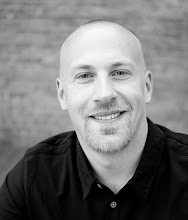
I came across an article this morning about the impact 'adult' (as opposed to embryonic) stem cells can have and is having:
Doctors have given a woman a new windpipe with tissue engineered from her own stem cells in what experts have hailed as a "milestone in medicine."
Claudia Castillo, 30, suffered from tuberculosis for years.
The breakthrough allowed Claudia Castillo, 30, to receive a new section of trachea -- an airway essential for breathing -- without the risk that her body would reject the transplant.
Castillo was given the stem cell surgery, the controversial branch of medicine that some say could lead to human cloning, after suffering a severe lung collapse. (Read whole article) Now a very important detail is left undefined in the initial part of the article, it isn't just stem cells, but adult stem cells. So no human life was destroyed in this process. They mention that half-way through. This is important because given the way this discussion has been framed in the public square, people hear stem cells and associate that with embryonic stem cells.
Martin Birchall, professor of surgery at the University of Bristol, who was part of the team that did the operation, notes that "Surgeons can now start to see and understand the very real potential for adult stem cells and tissue engineering to radically improve their ability to treat patients with serious diseases."
As we walk further as a society into the "Biotech" century, we need to think about what we do and how we do it when it comes human persons.
(Description of book): Some of humankind's greatest tools have been forged in the research laboratory. Who could argue that medical advances like antibiotics, blood transfusions, and pacemakers have not improved the quality of people's lives? But with each new technological breakthrough there comes an array of consequences, at once predicted and unpredictable, beneficial and hazardous. Outcry over recent developments in the reproductive and genetic sciences has revealed deep fissures in society's perception of biotechnical progress. Many are concerned that reckless technological development, driven by consumerist impulses and greedy entrepreneurialism, has the potential to radically shift the human condition - and not for the greater good. "Biotechnology and the Human Good" builds a case for a stewardship deeply rooted in Judeo-Christian theism to responsibly interpret and assess new technologies in a way that answers this concern. The authors jointly recognize humans not as autonomous beings but as ones accountable to each other, to the world they live in, and to God. They argue that to question and critique how fields like cybernetics, nanotechnology, and genetics might affect our future is not anti-science, anti-industry, or anti-progress, but rather a way to promote human flourishing, common sense, and good stewardship. A synthetic work drawing on the thought of a physician, ethicists, and a theologian, "Biotechnology and the Human Good" reminds us that although technology is a powerful and often awe-inspiring tool, it is what lies in the heart and soul of who wields this tool that truly makes the difference in our world.
Labels: Cultural Observations, Current Events, Ethics, Philosophy, Sanctity of Life, Thinking Christianly
 This is a great resource exploring the difficult questions of how Jesus can be the only way and if there is a God, and he is good and all-powerful--then why evil?
This is a great resource exploring the difficult questions of how Jesus can be the only way and if there is a God, and he is good and all-powerful--then why evil?



